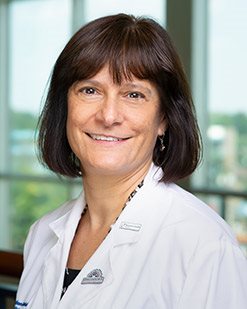National Jewish Health Applauds New Beryllium Rule
Institution advocated for lower workplace exposure to save lives
DENVER —
 National Jewish Health, a leader in the research, diagnosis and treatment of chronic beryllium disease, applauded a new federal rule that will reduce workplace exposures to the metal beryllium and increase medical surveillance in several industries. On January 9, 2017, the U.S. Occupational Health and Safety Administration (OSHA) issued a final rule that will reduce permissible exposures to airborne beryllium by 90 percent, and requires companies to take specific steps to reduce beryllium exposure in several industries previously exempt from the OSHA standard, including general construction, shipyards and aerospace.
National Jewish Health, a leader in the research, diagnosis and treatment of chronic beryllium disease, applauded a new federal rule that will reduce workplace exposures to the metal beryllium and increase medical surveillance in several industries. On January 9, 2017, the U.S. Occupational Health and Safety Administration (OSHA) issued a final rule that will reduce permissible exposures to airborne beryllium by 90 percent, and requires companies to take specific steps to reduce beryllium exposure in several industries previously exempt from the OSHA standard, including general construction, shipyards and aerospace.
“These new standards better reflect the knowledge about beryllium exposure and its harmful health effects that we and others have developed over the past several decades,” said Lisa Maier, MD, chief of environmental and occupation health sciences at National Jewish Health. “The standards will protect thousands of workers in the United States from the debilitating and potentially deadly effects of inhaling beryllium particles, aerosols or fumes.”
Beryllium is prized for its combination of strength and light weight. It is used in a variety of applications including the aerospace, electronics, energy, telecommunications, medical and defense industries. The metal does not pose any threat if it is not manipulated. However, when particles, aerosols or fumes become airborne during machining or otherwise working with the material, it can be inhaled into the lungs where it can cause an inflammatory, scarring disease that can be lethal.
National Jewish Health has been a leader in the research, diagnosis and treatment of chronic beryllium disease for decades. Physicians at National Jewish Health see more patients affected by beryllium and perform more diagnostic tests than any other institution. Researchers have contributed significantly to knowledge about beryllium and its effect on people who inhale it. That research was instrumental in development of the new standards. Dr. Maier and epidemiologist Peggy Mroz, MSPH, testified several times in favor of the proposed standards. National Jewish Health contributions were mentioned 29 times in the background and rationale for the final standard.
The Industrial Outreach Program at National Jewish Health offers a comprehensive array of services including clinical evaluation, exposure sampling, medical surveillance program design or review, risk assessment, on-site and web-based beryllium education and industrial hygiene evaluation and design. For more information visit the beryllium program page.
The new rule reduces the daily 8-hour exposure 90 percent, from 2.0 micrograms per cubic meter to 0.2 micrograms per cubic meter. In workplaces that exceed that standard, employers would have to reduce airborne concentration of beryllium and provide additional protection including personal protective equipment, medical examinations, medical surveillance and training. It sets short-term exposures limits at 2.0 micrograms per cubic meter over a 15-minute period. The rules will be phased in over the next three years. OSHA estimated that the rule will save 94 workers per year from beryllium-related disease, and provide net benefits of $560 million per year. At least 62,000 workers in the United States are exposed to beryllium in their workplaces.
National Jewish Health is the leading respiratory hospital in the nation delivering excellence in multispecialty care and world class research. Founded in 1899 as a nonprofit hospital, National Jewish Health today is the only facility in the world dedicated exclusively to groundbreaking medical research and treatment of children and adults with respiratory, cardiac, immune and related disorders. Patients and families come to National Jewish Health from around the world to receive cutting-edge, comprehensive, coordinated care. To learn more, visit njhealth.org or the media resources page.
Media Resources
We have many faculty members, from bench scientists to clinicians, who can speak on almost any aspect of respiratory, immune, cardiac and gastrointestinal disease as well as lung cancer and basic immunology.
Media Contacts
Our team is available to arrange interviews, discuss events and story ideas.
- Jessica Berry
303.398.1082 office
303.807.9491 mobile
berryj@njhealth.org - Adam Dormuth
303.398.1002 office
970.222.5034 mobile
dormutha@njhealth.org
